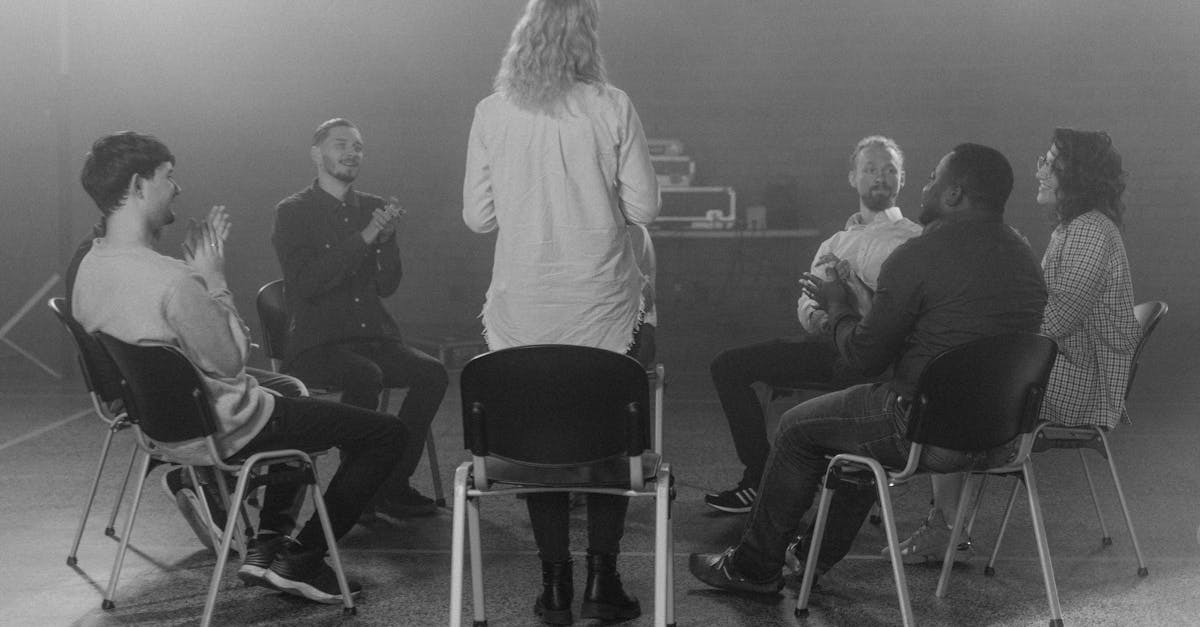
Table Of Contents
The Role of Group Therapy in Addiction Recovery
In addiction recovery, Group Therapy holds a significant role in providing individuals with a supportive environment to share experiences, struggles, and successes. Being surrounded by peers who understand the challenges of addiction can foster a sense of belonging and reduce feelings of isolation. Group Therapy allows participants to offer each other validation and perspective, creating a community of individuals united in their journey towards recovery. Through sharing personal stories and strategies, members of the group can learn from one another and develop coping mechanisms to navigate the complexities of addiction.
Moreover, Group Therapy encourages accountability and motivation among participants. By witnessing the progress of others in the group, individuals are inspired to stay committed to their own recovery journey. The collective support and encouragement within Group Therapy sessions can foster a sense of responsibility towards oneself and others in the group. Embracing a collaborative approach, Group Therapy empowers individuals to take charge of their recovery while feeling supported by a network of peers who share similar goals and experiences.
Peer Accountability and Encouragement
In the realm of group therapy, peer accountability and encouragement play pivotal roles in fostering a supportive and nurturing environment for individuals seeking recovery from various challenges. By creating a space where individuals hold each other responsible for their actions and progress, group therapy cultivates a sense of shared responsibility and empowerment among participants. This communal approach not only provides a sense of accountability but also encourages individuals to actively engage in their healing journey with the support of their peers.
In the context of group therapy, peer encouragement serves as a motivational force that uplifts individuals during times of struggle and triumph. Through shared experiences and mutual understanding, participants in group therapy can offer empathy, validation, and encouragement to one another, creating a network of support that fosters personal growth and resilience. This collective encouragement helps individuals navigate their challenges with a sense of solidarity and companionship, ultimately enhancing the therapeutic benefits of group therapy in promoting lasting healing and recovery.
Incorporating Mindfulness Practices in Group Therapy
Mindfulness practices have become increasingly popular in the realm of group therapy, offering participants a way to cultivate present-moment awareness and non-judgmental acceptance. By incorporating mindfulness techniques into group therapy sessions, individuals are encouraged to focus on their thoughts, emotions, and sensations without attachment or aversion. This practice can enhance the overall experience of group therapy by fostering deeper introspection and self-awareness among participants, ultimately leading to personal growth and transformation within the group dynamic.
In a Group Therapy setting, mindfulness practices can also aid in stress reduction and emotional regulation. By teaching individuals to observe their thoughts and feelings without immediately reacting, participants can develop a greater sense of emotional control and resilience. This can be particularly beneficial in group therapy sessions where discussions of sensitive topics or traumatic experiences may arise, allowing individuals to engage with their emotions in a more mindful and compassionate way.
Stress Reduction and Emotional Regulation
Group therapy plays a significant role in stress reduction and emotional regulation for individuals seeking support and healing. Being part of a group where members share similar struggles creates a sense of solidarity and understanding, which can reduce feelings of isolation and foster emotional connection. Through open discussions and shared experiences, group therapy provides a safe space for individuals to express their emotions and receive empathy and support from peers.
In the group therapy setting, members are encouraged to explore their emotions and develop coping strategies to manage stress and regulate their feelings. Group activities and exercises focus on mindfulness practices to cultivate self-awareness and emotional balance. By engaging in these activities together, participants can learn to recognise triggers and patterns in their emotional responses, leading to healthier ways of coping with stress and regulating their emotions effectively.
Addressing Trauma Through Group Therapy
Addressing traumatic experiences through group therapy can provide a safe and supportive environment for individuals to process emotions and memories. In a group setting, participants can share their struggles and stories, knowing that they are being heard and understood by others who have faced similar challenges. This sense of shared experience and empathy can foster a deeper level of healing and connection within the group therapy sessions.
Group therapy for addressing trauma can also help individuals develop new coping strategies and skills to manage symptoms related to their traumatic experiences. Through the guidance of a trained therapist and the support of their peers, participants can learn to regulate their emotions, build resilience, and work towards reducing the impact of their trauma on their daily lives. The collective strength and solidarity within the group can empower individuals to confront their past traumas and move towards a path of healing and recovery.
Safe Space for Healing and Processing
Group therapy offers a safe and supportive environment for individuals to heal and process their emotions in a group setting. Being surrounded by others who may have similar experiences can provide a sense of belonging and understanding, fostering a space where individuals feel validated and supported. Group therapy allows participants to share their struggles and triumphs, creating a sense of community and camaraderie that can be incredibly powerful in the healing journey.
Through group therapy, individuals have the opportunity to explore their emotions, thoughts, and behaviours in a non-judgmental space. The group dynamic can offer different perspectives and insights that one may not have considered on their own. This collaborative approach enables members to learn from each other and develop new coping strategies, interpersonal skills, and a deeper understanding of themselves. In this safe space, individuals can feel empowered to work through their challenges and grow in their personal development journey.
FAQS
What is group therapy?
Group therapy is a form of psychotherapy where a small group of individuals meet regularly to discuss their issues, share experiences, and provide support to one another under the guidance of a trained therapist.
What is the most popular type of group therapy?
Cognitive-behavioral therapy (CBT) is one of the most popular types of group therapy. It focuses on changing negative thought patterns and behaviors to improve emotional regulation and coping skills.
How can group therapy help in addiction recovery?
Group therapy plays a crucial role in addiction recovery by providing a supportive environment where individuals can share their struggles, receive feedback, and learn from others' experiences. It also fosters peer accountability and encouragement.
Is mindfulness practiced in group therapy sessions?
Yes, many group therapy sessions incorporate mindfulness practices to help participants become more present and aware of their thoughts and emotions. Mindfulness techniques can promote stress reduction and improve emotional regulation.
Can group therapy help individuals address trauma?
Yes, group therapy can be effective in addressing trauma by providing a safe space for individuals to share their experiences, process their emotions, and receive validation and support from others who have also experienced trauma.
